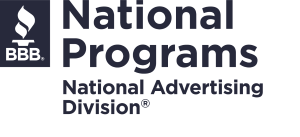
New York, NY – February 1, 2023 – The National Advertising Division (NAD) of BBB National Programs recommended that Charter Communications, Inc. discontinue or modify the claim that Spectrum is America’s leading internet service provider (ISP). NAD also recommended that Charter discontinue the claim “Advanced WiFi. A better kind of internet” or modify it to avoid conveying a message of superiority over Spectrum’s competitors.
The claims at issue, which appeared across several forms of media, were challenged by AT&T Services, Inc.
America’s “Leading” ISP Claims
Advertisers must be careful to avoid conveying unintended comparative superiority messages against the products or services of their competitors if such message is not supported.
With respect to the messages reasonably conveyed by the “America’s leading internet provider” claim in the challenged advertisements, NAD determined that while consumers may understand the claim as relating to market share, in the context of the challenged advertisements consumers may also reasonably interpret the message to be that Spectrum Internet:
- Has the most subscribers of any ISP in America;
- Provides the fastest speeds of any ISP in America; and
- Is superior to all other ISPs with respect to reliability and security.
Because these messages were not supported by Charter’s evidence, NAD recommended that Charter discontinue claims that Spectrum Internet is America’s leading internet service provider or modify the claim or its use of the claim to avoid conveying such messages.
NAD noted that nothing in its decision prevents Charter from promoting that Spectrum Internet has the most subscribers among ISPs against which it competes or making claims of comparative performance superiority for which it has support.
“Better Kind of Internet” Claims
NAD determined that the claim that Spectrum offers “Advanced WiFi. A better kind of internet,” conveys the message that WiFi services with enhanced security and the ability to handle up to 200 devices are “better” than services without those features. Further, NAD found that in the context of the challenged advertisement, this claim also reasonably conveys a message of superiority over Spectrum’s competitors – an unsupported message.
Therefore, NAD recommended that Charter discontinue the claim “Advanced WiFi. A better kind of internet” or modify its advertising to avoid conveying the message that Spectrum Internet provides an internet experience that is superior to the internet experience provided by other ISPs because Spectrum’s WiFi is advanced relative to other ISP’s WiFi.
In its advertiser statement, Charter stated that while it “disagrees” with certain aspects of NAD’s decision, “it is a strong supporter of self-regulation and will comply with NAD’s recommendations.”
All BBB National Programs case decision summaries can be found in the case decision library. For the full text of NAD, NARB, and CARU decisions, subscribe to the online archive.
About BBB National Programs: BBB National Programs, a non-profit organization, is the home of U.S. independent industry self-regulation, currently operating more than a dozen globally recognized programs that have been helping enhance consumer trust in business for more than 50 years. These programs provide third-party accountability and dispute resolution services that address existing and emerging industry issues, create a fairer playing field for businesses, and a better experience for consumers. BBB National Programs continues to evolve its work and grow its impact by providing business guidance and fostering best practices in arenas such as advertising, child-and-teen-directed marketing, data privacy, dispute resolution, automobile warranty, technology, and emerging areas. To learn more, visit bbbprograms.org.
About the National Advertising Division: The National Advertising Division (NAD) of BBB National Programs provides independent self-regulation and dispute resolution services, guiding the truthfulness of advertising across the U.S. NAD reviews national advertising in all media and its decisions set consistent standards for advertising truth and accuracy, delivering meaningful protection to consumers and leveling the playing field for business.
Contact Information:
Name: Abby Hills
Email: [email protected]
Job Title: Director of Communications
Tags:
PR-Wirein, Go Media, CE, Nexis Newswire, Google News, Financial Content, Reportedtimes, IPS, Extended Distribution, iCN Internal Distribution, English
